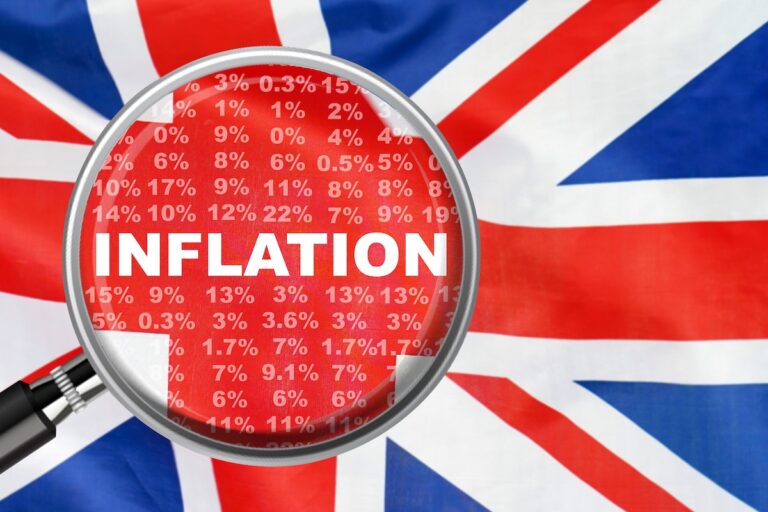UK Businesses Optimistic as Inflation Falls to 3.9%, Eliciting Calls for Policy Adjustments
In response to the latest Consumer Price Index (CPI) figures revealing a drop to 3.9% in the year to November 2023 – the lowest in two years – business leaders express relief and optimism for the economic landscape.
 , National Chair of the Federation of Small Businesses (FSB), said:
, National Chair of the Federation of Small Businesses (FSB), said:
“The decrease in inflation is a whisper of relief to small firms as we end the year. The reduction marks a significant shift from the staggering 10 per cent figure this time last year at the peak of the cost-of-doing-business crisis.
“As inflationary pressures ease, small firms will be wanting the Bank of England to indicate when interest rates may start to fall – this would increase access to finance, drive economic growth and provide a fighting chance at avoiding a recession.
“Businesses will be hoping for a stable environment characterised by more predictable market conditions and lower costs in 2024.”
Mark Taheny, Senior Director at corporate finance advisor Centrus, commented: “Core inflation in the UK tends to be strongly correlated with Euro area core inflation, which has decelerated sharply in recent months.  The Bank of England will be relieved that we’re not veering off track. Critically, wage inflation, core inflation, and services inflation are all trending above US and ECB figures currently, so there is still room for inflation to come down further in the UK in the coming months.
The Bank of England will be relieved that we’re not veering off track. Critically, wage inflation, core inflation, and services inflation are all trending above US and ECB figures currently, so there is still room for inflation to come down further in the UK in the coming months.
“But the Bank’s comments last week remained hawkish, and warned that inflation is more entrenched here than elsewhere. We expect the trend in inflation to continue downward, but supply shocks can disrupt such progress very easily – just this week, increased unrest in the Middle East has caused a number of the leading shipping companies to reroute tankers and led to a spike in the price of oil, demonstrating quite how sensitive energy, and inflation in general, is to exogenous supply shocks. In the absence of a crystal ball, it’s critical that companies have appropriate interest rate hedging strategies in place so they become insulated to such rate movements.”
Mike Randall, CEO of Simply Asset Finance, said: “After months of double-digit inflation earlier this year, a further reduction will be welcome news for business owners; bringing us closer to the Government’s 2% target.
“It’s important to reflect on the fact that we are now in an economic environment which has seen inflation halved from its January highs – giving SMEs some much needed reassurance to plan for the future. And with further  government support such as the full expensing scheme now being made permanent, we can only hope this inflation continues to fall, and 2024 will be positive year for recovery.
government support such as the full expensing scheme now being made permanent, we can only hope this inflation continues to fall, and 2024 will be positive year for recovery.
“Despite this, we must recognise that a lot of businesses still face hardships, and vital government support lines – such as the Recovery Loan Scheme – will come to an end in June 2024. With this in mind, it’s vital the Government considers the legacy of such schemes to continue to give SMEs future certainty. Meanwhile, there is still a clear opportunity for specialist lenders to step up and give expert guidance to the SMEs supporting the backbone of our economy.”
Rachel Winter, Partner at Killik & Co, said: “Another fall in inflation will be heartening to investors as it signals a return to economic stability. Steadier prices allow companies and investors to plan for the long term, boosting market confidence as we head towards 2024.
 “Whilst this news is positive, we are not out of the woods yet. Prices remain high and the cost-of-living crisis is still a present struggle for many. Likewise, core inflation, a metric watched closely by rate setters, isn’t falling as fast as one would hope, a fact that might have contributed to Andrew Bailey’s comments last week which alluded to potential further rate hikes next year.
“Whilst this news is positive, we are not out of the woods yet. Prices remain high and the cost-of-living crisis is still a present struggle for many. Likewise, core inflation, a metric watched closely by rate setters, isn’t falling as fast as one would hope, a fact that might have contributed to Andrew Bailey’s comments last week which alluded to potential further rate hikes next year.
“In such an environment, investors have various options. Fixed-income products continue to offer strong returns in this higher interest rate era, with opportunities still present in the short-dated gilts market. It is also important investors stay flexible and diversify their portfolios into other asset classes, closely monitoring macroeconomic trends.”
 Head of Enterprise at Shawbrook, said: “As inflation takes a downward turn, it spells positive news for SMEs. Lower inflation not only eases the cost pressures on businesses but also provides a more stable economic environment. This allows small and medium-sized enterprises to plan and invest with greater confidence, encouraging an atmosphere conducive to growth and innovation. While it’s still higher than we’d like to see, a controlled inflation rate can be a catalyst for the success of businesses, and I’m feeling optimistic regarding the opportunities that lie ahead for business owners in 2024.”
Head of Enterprise at Shawbrook, said: “As inflation takes a downward turn, it spells positive news for SMEs. Lower inflation not only eases the cost pressures on businesses but also provides a more stable economic environment. This allows small and medium-sized enterprises to plan and invest with greater confidence, encouraging an atmosphere conducive to growth and innovation. While it’s still higher than we’d like to see, a controlled inflation rate can be a catalyst for the success of businesses, and I’m feeling optimistic regarding the opportunities that lie ahead for business owners in 2024.”


